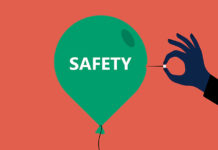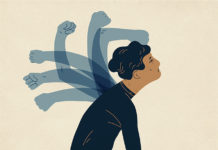Alternatives to Suicide: Strategies for Staying Alive
For more than 7,300 days of my life, waking up the next morning required me to make a conscious choice to diligently pursue something — anything — other than my impulse to die. Maybe the best teachers of how to avoid suicide will not be the people who are afraid someone else will die, but those of us who can explain how and why we regularly choose to live.
Katharine Hepburn is Glamorous – Suicide is Not
What do you do when the media reports stories of children who have killed themselves on SSRIs? Position the stories of these children, not the drugs they were taking, as a suicide risk. Warn that more children will die if mouthy parents are allowed to speak and upstart journalists are allowed to report. And then position psychiatrists as the only people who can talk about suicide without producing an epidemic of self inflicted deaths.
The Conflicts That Result From Globalizing Euro-American Psychology in India
Researchers examine the transformation of work, life, and identity in India as a result of Western corporate and psychological culture.
Researcher Acknowledges His Mistakes in Understanding Schizophrenia
Sir Robin Murray, a professor at the Institute of Psychiatry, Psychology, and Neuroscience in London, states that he ignored social factors that contribute to ‘schizophrenia’ for too long. He also reports that he neglected the negative effects antipsychotic medication has on the brain.
Rise in Suicides Baffles Military
The New York Times reports that the "baffling" rise in suicide rates in the U.S. military is not correlated to deployment, as is often...
Study Confirms Higher Suicide Risk for Sexual Minority Adolescents
Researchers report that sexual minority adolescents have considered, planned, and attempted suicide substantially more than their heterosexual peers.
New Data on the Adverse Effects of Meditation and Mindfulness
Study reports on the less-examined findings of difficult and painful meditation-related experiences.
ASIST Suicide Prevention Training: “Safe” for Who?
Ever since the cops and CPS were called on me by someone at an ASIST Suicide Prevention training, I've been trying to see it all as a gift. What better proof to counter those who claim it's "safe" to tell than what happened to me? What better evidence that our system responses are seriously off track? It wasn't safe. Not for me.
Opening Doors in the Borderlands: An Interview with Liberation Psychologist Mary Watkins
MIA’s Micah Ingle interviews Mary Watkins about reorienting psychology toward liberation and social justice.
On the Link Between Psychiatric Drugs and Violence
One of psychiatry's most obvious vulnerabilities is the fact that various so-called antidepressant drugs induce homicidal and suicidal feelings and actions in some people, especially late adolescents and young adults. This fact is not in dispute, but psychiatry routinely downplays the risk, and insists that the benefits of these drugs outweigh any risks of actual violence that might exist.
Suicide: A Permanent Solution to a Temporary Problem
Many people who have never been severely depressed might ask, “Why would anybody want to kill themselves?” After all, taking one’s life goes directly against the survival instinct that nature has programmed us with. For example, if you were walking across the street and saw a car coming towards you − your first instinct would be to jump out of its path. Yet, when the brain becomes overwhelmed with chronic, intense pain that seems to have no end, then suicide becomes not only a rational choice, but a compelling option. After all, if you are faced with the prospect of being in eternal hell, then taking your own life seems like an act of self-love, not an act of self-detruction.
Mortification of the Self: The Impact of Stigma on Identity
This is how the vicious cycle continues: the more one internalizes stigma, the more she will distance herself from her social surroundings; the more she distances herself, the more she will experience proliferation of symptoms; and the more symptoms are present, the more others will stigmatize and "force" the person into further isolation.
Mental Health Professionals Critique the Biomedical Model of Psychological Problems
While a great deal of the excitement about advances in psychological treatments comes from the potential for research in neuroscience to unlock the secrets of the brain, many mental health experts would like to temper this enthusiasm. A special issue of the Behavior Therapist released this month calls into question the predominant conception of mental illnesses as brain disorders.
Individuals with Psychosis Symptoms More Likely to be Victimized
Individuals diagnosed with a psychotic disorder are 4-6 times more likely than the general population to experience victimization.
Study Finds Heavy Metal Music Beneficial to Mental Health
A new study highlights the role heavy metal music plays in the mental health of adolescents facing adversity.
40,000 Suicides Annually and America Still Shrugs
In my last two posts, Back in the Dark House Again: The Recurrent Nature of Clinical Depression and Am I Having a Breakdown or Breakthrough? Further Reflections on a Depressive Relapse, I have shared my recent relapse into depression. Although it has been tough, when I wake up each morning I am grateful for one thing — I am not suicidal. Others are not as fortunate.
Prazosin Ineffective for Preventing Suicidal Thoughts — May Worsen Nightmares
A new study found that prazosin was associated with increased insomnia and nightmares, and did not reduce suicidal thoughts.
Why My Daughter Died and I Lived
To be a parent of a suicidal child is to be in a terrible position, where you hold in your hands the life most valuable to you and know that any slip of your hands may end that life. In the 1970s, my suicidality was treated nonmedically and I lived. In the 2000s, my daughter Martha’s suicidality was treated medically and she died.
Study Investigates Long-Term Effects of Social and Emotional Learning Programs
Social and Emotional Learning (SEL) programs have gained popularity in U.S. schools in recent years. A new study examines the nature and longevity of their impact on students.
Doctor O’s Adventures in Wonderland
I am a female physician who survived my own suicide attempt. I had managed to fly under the radar as a very progressive family MD for twenty years. And when I stumbled and bled, the sharks were there ready to devour the carcass. Do I believe that racism and sexism influenced charges being filed against me? I certainly do.
The Temptation of Certainty: David Foster Wallace, Suicide and Psychiatric Drug Withdrawal
While increasing numbers of Americans are being prescribed antidepressants, the Centers for Disease Control reports that suicide rates increased 28% from 1999 to 2010. Trained professionals remain unable to predict who is at risk. Their guess is as good as chance.
Challenges in Measuring Low-Value Healthcare
Differences in patient-centric versus service-centric measures make quantifying low-value care difficult.
How the News Frames the Opioid Epidemic
US news coverage has primarily framed the opioid drug abuse epidemic as a criminal justice issue rather than a public health problem, according to new research published ahead of print in the Journal of Psychiatric Services. The media’s framing of the epidemic may increase stigma against those who develop a dependency on prescription drugs and distract political attention from public-health oriented solutions, such as increased access to substance abuse recovery treatments.
Study Examines Voice Hearing Accounts of 499 Nonclinical Individuals
Researchers look at voice hearing experiences shared by nonclinical samples, exploring these experiences in the general population.
On the Urge to Take My Life, and My Decision to Take It Back...
I am alive today in the most intense, sometimes painful, always beautiful of ways, and one of the many reasons I credit for my life is this: I am a failed product of ‘Suicide Prevention.’ For this, I am eternally grateful. While this statement may sound like a confusing paradox, I’d like to explain what I mean.



























